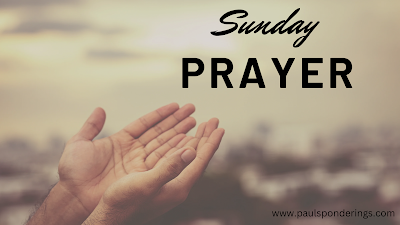The apostle Paul wrote:
So if you have been raised with Christ, seek the things above, where Christ is, seated at the right hand of God. Set your minds on things above, not on earthly things. For you died, and your life is hidden with Christ in God. When Christ, who is your life, appears, then you also will appear with him in glory. (Colossians 3:1-4; CSB)In this passage, we discover two crucial parts of discipleship. In order to follow Jesus and experience the transforming working of the Holy Spirit, we must start with our minds.
Colossians 3 begins by reminding us that we have been raised with Christ, and therefore, we need to seek the things above. This is very similar to what Jesus taught during the Sermon on the Mount: “But seek first the kingdom of God and his righteousness, and all these things will be provided for you.” (Matthew 6:33; CSB)
This means that the first crucial part of discipleship is to have a transformation of our values. We can’t continue to chase after the things the world values: pleasure, success, money, and recognition and follow Jesus. Disciples are to value the things of Heaven.
Our values change because our identity has changed. We are now citizens and ambassadors of God’s kingdom. To be ambassadors of the Kingdom of God means that we represent Him in the world, and we can only do that if we value God and His kingdom above all else.
Colossians 3 continues in verse 2 by saying that we need to set our minds on the things above. To set our minds on the things above isn’t about trying to imagine pearly gates and streets of gold, but meditating on heavenly things.
This brings us to the second crucial part of discipleship, and that is, we need to have a change of mind. Having a change of mind means what we think about and believe needs to be in line with God’s will and word. Rather than having opinions and thoughts that are shaped by politics, social media, and partisan news networks, our minds are influenced by the Bible, prayer, and other Christians.
The passage goes on to remind us that we have died to ourselves and that our lives are hidden with God through Jesus. The lives we live are not our lives, but they belong to God. We may be able to see a change of heart and a change of behavior, but these changes are only the beginning of the transformation that Jesus has promised to us. When we accept Jesus as our Lord and Savior, we are no longer slaves to sin but instead, we are made new in him.
This happens because our old selves, with their sinful desires and selfish pursuits, are crucified with Christ, and we are raised to new life. This new life is characterized by a desire to please God by demonstrating His character in this world through the way we live.
Finally, Colossians 3:4 teaches us that when Jesus returns, we will also appear with him in glory. This is a reminder of the hope that we have because of Jesus’ death and resurrection. We know that this life is not all there is, and that one day Jesus will return and make everything right, and that God will come and dwell with His people.
This hope should inspire us to live our lives with purpose and intentionality. We are to seek to live our lives in a way that honors God and reflects His love to those around us. In this way, we show that we value the things of heaven over the things of the world.
The passage of Colossians 3:1-4 serves as a significant reminder of the pivotal role our minds and hearts play in discipleship. Our ability to progress with Jesus depends on the transformation of our values and thoughts. Such a transformation empowers us with the strength to live the lives that God had intended for us from the very beginning.
















